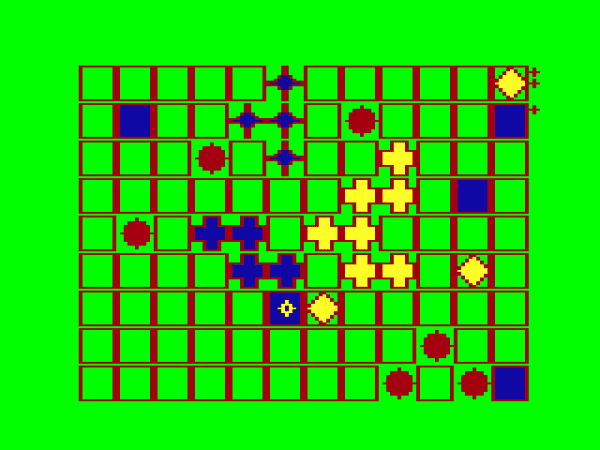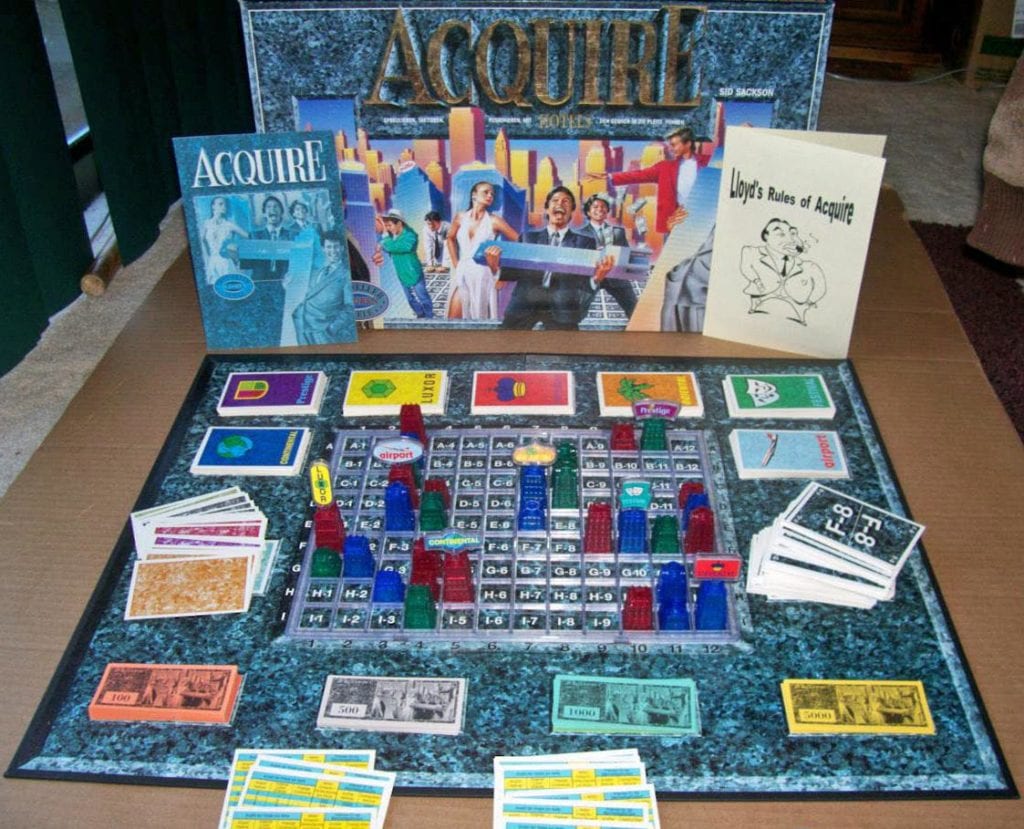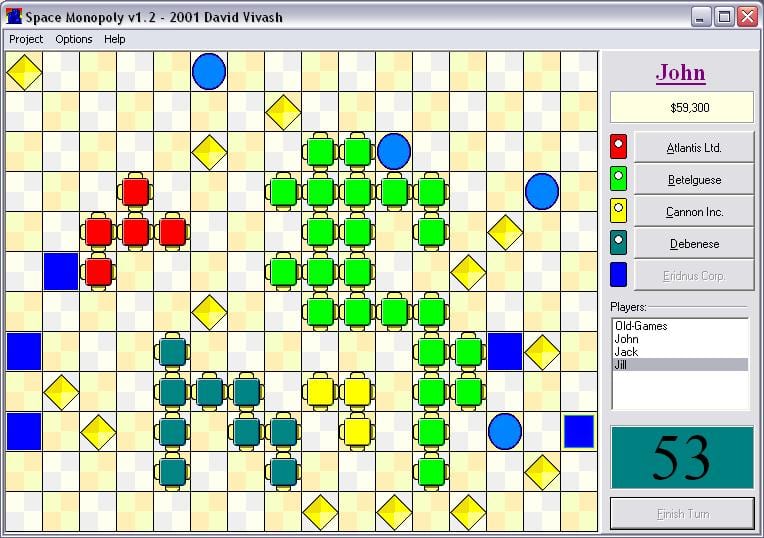Timeline
- 1964: Acquire board game
- 1984: Space Monopoly on Dragon 32
- 1999 (best guess): Space Monopoly on Windows
- 2020: Space Start Up 3D
Starting in the middle – Dragon 32
My journey started in 1984. Back then computers were incredibly basic compared to now. Games were loaded via cassette, lots of hissing noises. Sometimes, games were even typed in from computer magazines. There were no floppy discs, the Internet wasn’t even a twinkle in the eye of Tim Berners-Lee.

I played the game as a kid with my family, and really enjoyed it. Our computer was a Dragon 32, later replaced by the Dragon 64. Yes, they were 32K and 64K computers. That’s K, not Mb or Gb, and certainly nowhere near a Tb. The game was published by Microdeal in 1984. Orwell would be disappointed, no doublespeak or Oceania, just capitalism in space.
As you can see from the screenshots, the graphics were rudimentary, because these were early days. I loved the game.
I believe it was also available in the USA on other 80’s computers. The Dragon series were predominantly sold in the UK.
Dragon 32 links
http://archive.worldofdragon.org/index.php?title=Space_Monopoly
Skip back to the start – Acquire

It’s widely acknowledged that the inspiration for Space Monopoly was Acquire, a board game from the 60’s by Sid Sackson. I’ve not played it but have read the rules and seen photos of the game. A few comments, admittedly from a weak position of knowledge.
- Thank you Sid, you started this!
- I can definitely see how Acquire “inspired” Space Monopoly.
- There are some very obvious similarities but also some differences.
- Acquire was based on hotels, not companies. They had shares but were limited to a maximum of 25.
- It must have taken a very long time to play by hand. Computers very easily calculate share price changes, dividends, mergers etc.
Acquire links
https://en.wikipedia.org/wiki/Acquire
http://www.bobclaster.com/sid/acquire.htm
https://boardgamegeek.com/boardgame/5/acquire
Windows version by David Vivash

I’m not sure of the exact date, I think it was either very late 90’s or 2000, David Vivash ported the game to Windows. He made the code open source and free to download, either as an executable or as source code. It’s still possible to download now from http://space.monopoly.iwarp.com/. The game was essentially the same as the one I’d played as a kid, but now available on Windows for free. Thank you, David, for that!
The graphics were brought up to date, remember this was around 2000, but still look dated now.
Windows version links
https://www.old-games.com/download/5571/space-monopoly
http://space.monopoly.iwarp.com/
The present – Space Start Up 3D
This brings us to now, to Space Start Up 3D. Apart from the graphics and UI, the biggest difference is online play.
Advantages of online play
The main advantage is that you get to trade in secret. In all previous formats, when 1 player gets a reasonable lead, it’s hard to catch up. The leading player can simply simply hedge shares as they know what their opponents are buying.
Game play is faster. In online mode, each player takes a turn on the board, then all players buy and sell at the same time. This is often the part that takes the longest, but instead of having to wait for each player to trade in turn this happens simultaneously. It speeds the game up and makes it more enjoyable.
A few smaller tweaks
In the original game, opportunities to start a company are random. As an example, for a 2-player game, after a few turns Player A might have started 4 companies but Player B only 1. This gives Player A a massive advantage. As I played the dev versions with friends, we soon recognised this, and agreed to our own informal rule of not ever taking the 4th company at the beginning. This worked much better, so I changed the game to reflect this.
Last move
For each round of turns, every player’s move is highlighted. This makes it much easier to track what your opponents are doing.
Bots!
Still a work in progress, but we now have bots. There are pretty dumb at the moment, but like children, they’ll get smarter very quickly. It means you don’t have to wait for someone else to be online to play against.
End of game chart
I usually play this game while talking to my friends also via Zoom. We always look at the chart and discuss it. It’s interesting to see who was winning at different points in the game. Especially when someone manages to take the lead in the final few turns.
User login and high scores
You can register an account. This makes it much easier, as you don’t have to enter your name each time you play. High scores are also recorded. I think David Vivash did this manually, there is a high scores page, but I assume people had to email him with their scores, maybe with a screenshot or simply on trust. This is now done automatically.
